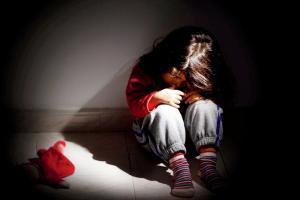If a country can be evaluated on the basis of how it takes care of its most vulnerable citizens India has a lot of soul-searching to do

There was little or no information pertaining to crimes against children in India, except for scattered references to how they appear to have grown in recent years
 I surprised myself by typing the words "paedophiles in India" a couple of days ago. I had never felt the need to do this, because a lot of us simply don't consider sexual attacks against children as part of our everyday discourse. We are, after all, usually occupied by other attacks, such as those on our freedom of speech, or the routine harassment of Indian women that millions of us grow up and start to accept as part of our culture. We are also turning into a nation that spends more time and energy protecting cows than human beings, but that is a topic for another day.
I surprised myself by typing the words "paedophiles in India" a couple of days ago. I had never felt the need to do this, because a lot of us simply don't consider sexual attacks against children as part of our everyday discourse. We are, after all, usually occupied by other attacks, such as those on our freedom of speech, or the routine harassment of Indian women that millions of us grow up and start to accept as part of our culture. We are also turning into a nation that spends more time and energy protecting cows than human beings, but that is a topic for another day.
ADVERTISEMENT
The idea of looking up crimes against children was sparked by the extraordinary outpouring of positive and negative press coverage surrounding a documentary about Michael Jackson. I watched it, eventually, and the opinions it elicited from others who did raised a number of uncomfortable questions.
I have been a fan of Jackson for as long as I can remember. Growing up in Bombay in the 80s, or most places on the planet at the time, made it impossible for most people with access to radio or television to escape the long shadow he cast on popular culture. The fact that his music continues to be the soundtrack to so many lives, including mine, is testament to his legacy as an artiste. What we seem to have collectively ignored, unfortunately, is the history of allegations that dogged him while he was alive and continue to follow him a decade after his passing.
Whether Jackson is guilty or not is another issue. The mere possibility of his being a paedophile, however, ought to raise serious questions about how First World countries routinely manage to look the other way while celebrities assault children. It's what prompted me to look at how India deals with allegations of a similar nature, and what I found was depressing.
First of all, statistics were radically different based on the source. There was little or no information pertaining to crimes against children, except for scattered references to how they appear to have grown in recent years. According to the National Crime Records Bureau, 10,854 cases of rape under Section 376 of the IPC and under Sections 4 and 6 of the Protection of Children against Sexual Offences (POCSO) Act were registered in 2015. That figure jumped to 19,765 in 2016, with the largest rise in such crimes registered among Madhya Pradesh (2,467) and Maharashtra (2,292).
What I found particularly disturbing was a dearth of information on what happened to these cases. Was justice served? Were these crimes solved or unsolved? According to experts, the rise in these statistics could be attributed to better reporting and the introduction of new criminal laws. The picture this painted was of a country that had failed to pay serious attention to people who attacked children. More importantly, it indicted the rest of us for failing to give these crimes more importance.
It was only serious incidents that jumped out. The 2006 Nithari serial murders, for example, got attention only after 10 girls went missing and were later found raped and murdered. Would a smaller number of victims have allowed serial offender Surinder Koli to get away? In 2014, there was a spate of child-sexual-abuse cases involving young children and their teachers. And then there was Sunil Rastogi from Uttarakhand, arrested when he was 38 for allegedly sexually assaulting young girls from 2004 until 2017, when he was put behind bars. A father of five, he had reportedly been arrested twice before and allowed to walk on bail. Rastogi was said to have sexually abused over 60 minor girls across Delhi, Uttar Pradesh and Uttarakhand. In a country that took these crimes seriously, he would have been locked away after the first arrest. The fact that 60 children had their childhoods snatched from them didn't cause much outrage.
It's safe to assume that most of these crimes continue to be private and mostly unreported because experts routinely remind us that nine out of 10 rapes and sexual assaults are carried out by people known to the victims. According to the NCRB, approximately 86% of all rapes in 2014 were committed by a person known to the victim. We ought to have these conversations with our children more often and reject the notion that assaults by family members are things to be swept under our carpets.
When he isn't ranting about all things Mumbai, Lindsay Pereira can be almost sweet. He tweets @lindsaypereira Send your feedback to mailbag@mid-day.com
Catch up on all the latest Crime, National, International and Hatke news here. Also download the new mid-day Android and iOS apps to get latest updates
 Subscribe today by clicking the link and stay updated with the latest news!" Click here!
Subscribe today by clicking the link and stay updated with the latest news!" Click here!






